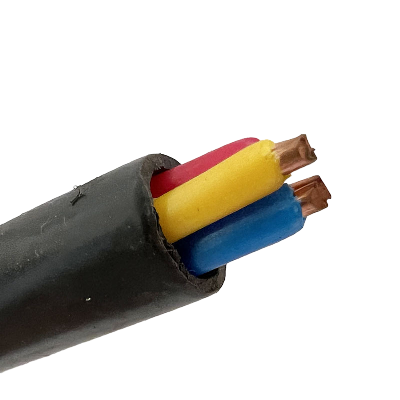Electric Vehicle (EV) charging cables, also known as EV charging
connectors or cords, have the primary purpose of providing a means
to charge electric vehicles. These cables are essential components
of the EV charging infrastructure and serve several key
purposes:Charging Electric Vehicles: The primary purpose of an EV
charging cable is to supply electrical power from a charging
station or power source to an electric vehicle's battery. This
enables the vehicle to charge its battery, extending its driving
range.Home Charging: EV owners use charging cables to connect their
vehicles to home charging stations or wall-mounted chargers. This
allows them to charge their EVs conveniently in their own garages
or driveways.Public Charging Stations: Public charging stations,
often found in parking lots, shopping centers, and along highways,
require EV charging cables. EV owners can use these cables to
connect their vehicles to the charging station's
infrastructure.Level 1 and Level 2 Charging: Charging cables are
used for Level 1 (110V) and Level 2 (240V) charging. Level 1
charging typically uses a standard household electrical outlet,
while Level 2 charging uses dedicated charging equipment that
provides faster charging rates.DC Fast Charging: In the case of DC
fast charging stations, which offer much higher charging power, EV
charging cables are designed to handle high currents and voltages,
allowing for rapid charging of the vehicle's battery.Compatibility:
EV charging cables come in various types and connectors to match
the specific requirements of different EV models and charging
stations. These connectors, such as Type 1, Type 2, CHAdeMO, CCS
(Combined Charging System), and Tesla's proprietary connector,
ensure that the cable can interface with the vehicle and charging
infrastructure correctly.Emergency Charging: In some cases, EV
owners may use their charging cable for emergency charging. For
example, if they run out of battery power and cannot reach a
charging station, they may use a portable charger to access a
standard electrical outlet for a slow charge.Travel and
Convenience: EV charging cables are important for long-distance
travel, as they allow EV owners to connect to a variety of public
charging stations, enabling them to recharge their vehicles during
journeys.Fleet Charging: Businesses and organizations with electric
vehicle fleets use EV charging cables to ensure their vehicles are
charged and ready for daily operations.In summary, EV charging
cables are integral to the operation of electric vehicles and the
development of the EV charging infrastructure. They allow EV owners
to charge their vehicles conveniently at home and on the road,
making electric mobility more accessible and practical. The
specific use of an EV charging cable depends on the type of
charging station, the vehicle's compatibility, and the charging
speed required.Product Details /* January 22, 2024
19:08:37 */!function(){function s(e,r){var
a,o={};try{e&&e.split(",").forEach(function(e,t){e&&(a=e.match(/(.*?):(.*)$/))&&1
Related products about 3*2.5mm+1*0.75mm AC and DC Multi-Core EV Power Charging Cable (Customizable)
-
 Waste Tyre Plastic Recycling Machinery Machine Tire Crusher Production Line Rubber Crumb Grinding Machine Equipment Tire Shredder
Waste Tyre Plastic Recycling Machinery Machine Tire Crusher Production Line Rubber Crumb Grinding Machine Equipment Tire Shredder
-
 Stretch Plastic Blowing Pet Bottle Making Blow Molding Machine Bottles Stretch Automatic Pet Bottle Blowing Machine
Stretch Plastic Blowing Pet Bottle Making Blow Molding Machine Bottles Stretch Automatic Pet Bottle Blowing Machine
-
 Waste Plastic Pet Bottle, Water Bottle Flake, PP/HDPE/LDPE PE Film Jumbo Woven Bags Plastic Crusher Machine, Plastic Crushing Washing Recycling Machine
Waste Plastic Pet Bottle, Water Bottle Flake, PP/HDPE/LDPE PE Film Jumbo Woven Bags Plastic Crusher Machine, Plastic Crushing Washing Recycling Machine
-
 Type 2 Wall-Mounted Electric Car Charging Station 7kw /11 Kwelectric Vehicle Charging Station Home Wallbox AC EV Charger Single Phase or 3three Phase
Type 2 Wall-Mounted Electric Car Charging Station 7kw /11 Kwelectric Vehicle Charging Station Home Wallbox AC EV Charger Single Phase or 3three Phase
-
 G-View G12W Wholesale Auto Car LED Headlight Bulb High Power H13 H11 9005 H7 H4 Car LED Headlights LED Car Lights
G-View G12W Wholesale Auto Car LED Headlight Bulb High Power H13 H11 9005 H7 H4 Car LED Headlights LED Car Lights
-
 New Design Porcelain Round Plates Dinner Set for Wedding and Banquet
New Design Porcelain Round Plates Dinner Set for Wedding and Banquet
-
 China 2023 New Design Super Soft 100% Polyester Microfiber Knitted Oversized Decoration Hoodie Blanket
China 2023 New Design Super Soft 100% Polyester Microfiber Knitted Oversized Decoration Hoodie Blanket
-
 Handmade Art Creative Materials Thickened White Paper Cup DIY Disposable Handmade Colored Paper Cup
Handmade Art Creative Materials Thickened White Paper Cup DIY Disposable Handmade Colored Paper Cup



